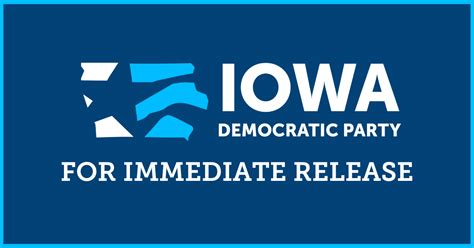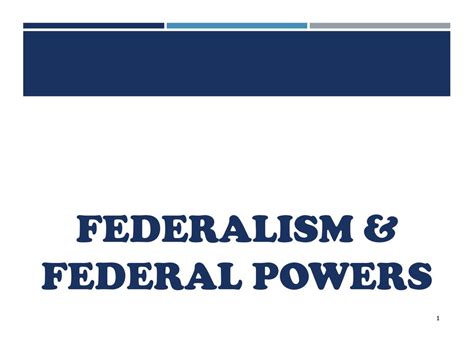Powers Denied To The National Government

The United States Constitution is a foundational document that outlines the framework of the federal government and the relationship between the national government and the states. One of the key aspects of the Constitution is the enumeration of powers denied to the national government, which serves to protect individual rights and state sovereignty. The concept of denied powers is rooted in the idea of federalism, where power is divided between the national government and the states, and is a crucial component of the system of checks and balances that underpins the US political system.
The powers denied to the national government can be found in various provisions of the Constitution, including the Tenth Amendment, which states that any powers not delegated to the federal government are reserved to the states or the people. This amendment is often referred to as the "states' rights" amendment, as it provides a clear limitation on the authority of the national government. Other provisions, such as the Ninth Amendment, also protect individual rights and liberties by ensuring that the enumeration of certain rights in the Constitution does not deny or disparage others that are not listed.
Key Points
- The US Constitution denies certain powers to the national government to protect individual rights and state sovereignty.
- The Tenth Amendment reserves powers not delegated to the federal government to the states or the people.
- The Ninth Amendment protects individual rights and liberties by ensuring that the enumeration of certain rights does not deny or disparage others.
- The powers denied to the national government include the power to quarter soldiers in private homes, the power to grant titles of nobility, and the power to impose excessive fines or punishments.
- The concept of denied powers is a crucial component of the system of checks and balances that underpins the US political system.
Powers Denied to the National Government

The Constitution explicitly denies the national government certain powers, including the power to quarter soldiers in private homes during peacetime, the power to grant titles of nobility, and the power to impose excessive fines or punishments. These denied powers are designed to protect individual rights and liberties, as well as to prevent the national government from abusing its authority. For example, the Third Amendment’s prohibition on quartering soldiers in private homes without the owner’s consent is a direct response to the experiences of the American colonists during the Revolutionary War, when British soldiers were often billeted in private homes without the owner’s consent.
Protections Against Abuse of Power
The Constitution also includes various provisions that protect against the abuse of power by the national government. For instance, the Eighth Amendment’s prohibition on cruel and unusual punishments is designed to prevent the government from imposing excessive or inhumane penalties on individuals. Similarly, the Fifth Amendment’s due process clause ensures that individuals are protected against arbitrary or unjust treatment by the government. These provisions are essential components of the system of checks and balances, as they help to prevent the national government from abusing its authority and protect individual rights and liberties.
| Amendment | Powers Denied |
|---|---|
| Third Amendment | Quartering soldiers in private homes without owner's consent |
| Eight Amendment | Cruel and unusual punishments |
| Fifth Amendment | Arbitrary or unjust treatment, including denial of due process |
| Tenth Amendment | Powers not delegated to the federal government |

Implications of Denied Powers

The implications of the powers denied to the national government are significant, as they help to shape the relationship between the federal government and the states, as well as between the government and individual citizens. By limiting the authority of the national government, the Constitution ensures that power is distributed more evenly, and that individual rights and liberties are protected. This, in turn, helps to promote a more just and equitable society, where individuals are free to pursue their goals and aspirations without undue interference from the government.
Balance of Power
The balance of power between the national government and the states is a critical aspect of the US political system, and the powers denied to the national government play a key role in maintaining this balance. By reserving certain powers to the states or the people, the Constitution ensures that the national government does not become too powerful, and that individual rights and liberties are protected. This balance of power is essential for promoting accountability, transparency, and good governance, and is a key component of the system of checks and balances that underpins the US political system.
What is the significance of the powers denied to the national government?
+The powers denied to the national government are significant because they help to protect individual rights and liberties, and prevent the government from abusing its authority. By limiting the authority of the national government, the Constitution ensures that power is distributed more evenly, and that individual rights and liberties are protected.
How do the powers denied to the national government promote a balance of power?
+The powers denied to the national government promote a balance of power by reserving certain powers to the states or the people. This ensures that the national government does not become too powerful, and that individual rights and liberties are protected. The balance of power is essential for promoting accountability, transparency, and good governance, and is a key component of the system of checks and balances that underpins the US political system.
What are some examples of powers denied to the national government?
+Some examples of powers denied to the national government include the power to quarter soldiers in private homes, the power to grant titles of nobility, and the power to impose excessive fines or punishments. These powers are explicitly denied to the national government by the Constitution, and are designed to protect individual rights and liberties.
Meta Description: Discover the powers denied to the national government and how they protect individual rights and liberties. Learn about the significance of these denied powers and how they promote a balance of power in the US political system. (149 characters)



